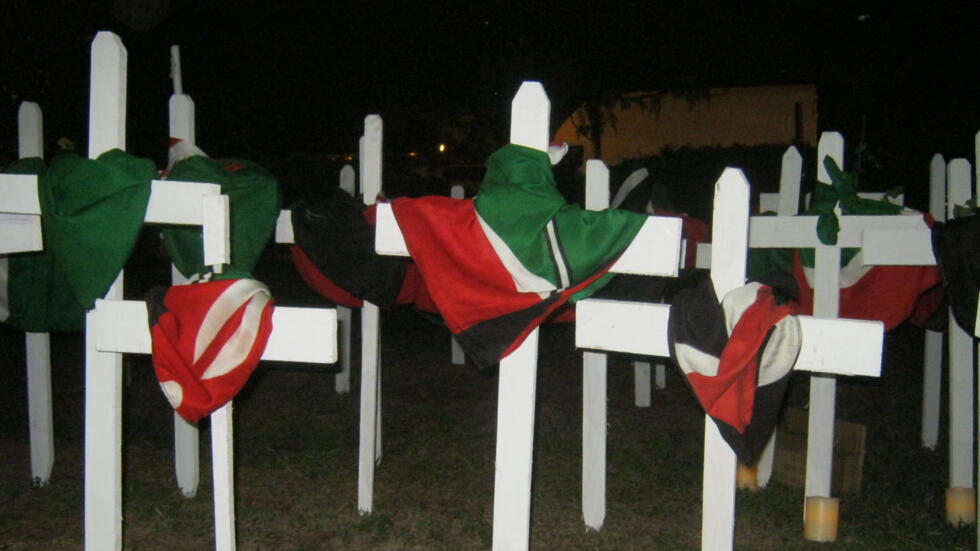Defiant Kenyan university reopens after terror attack
In Kenya, Garissa University College reopened on Monday, nine months after al Shebab extremists killed 147 people in a student residence. Security on campus, which now boasts a police station, has been beefed up.
Issued on: Modified:

Although it remains to be seen how many students will turn up when classes resume over the next few days, the re-opening is seen as a sign of the country’s determination to fight extremism.
“The reopening is an indication that the resilience, the endurance, the patience and the hard work of Kenyans has finally prevailed, has won against terror,” said activist Boniface Mwangi in a phone interview from Nairobi.
The government initially closed the campus after the April massacre, transferring survivors of the attack to Moi University in Eldoret, in western Kenya.
But it backpedalled on its decision after activists argued that keeping the university open would be a sign the country was standing up to al Shebab, an Islamist militia Kenyan troops have been fighting in neighbouring Somalia.
In a bold and symbolic gesture, the Northern Advocacy Organisation (NAO) invited Kenyans months ago from across the country to spend the night in the university residence where the students had been killed.
To show their resolve and determination, participants took the unusual step of sleeping in the victims’ beds -- a sign that Kenyans would not be intimated by the Shebab’s camp of fear and intimidation, explained NAO member Ali Bashir Yussuf.
“We wanted to show Kenyans and the rest of the world that we may be [ethnic] Somalis -- like most of the Shebab terrorists -- but we do not identify with them,” Yussuf explained in a phone interview from Garissa.
“It was a show of defiance and solidarity,” he said after attending the university re-opening. “We are not part of them, and we were hurt just like anyone else by the terror attack in Garissa.”
Reactions to the reopening on social networks was overwhelmingly favourable on Monday. “Classic tale of good triumph over evil, but more importantly it tells of the resilient unbreakable Kenyan spirit,” tweeted James Mathenge, the MP for Kieni Constituency.
Echoing the sentiment, activist Mwangi said:
“You cannot let terrorists stop us from going to school. It’s not about religion. What the terrorists are trying to do is to create fear among the community, a culture of fear among people who have been living harmoniously. If they had not reopened the university, the government would in effect be saying that a few armed men, a few ragtag militias, can force an entire country to close a university.”
On Monday, Yussuf, a teacher, praised the government for the university’s reopening. “This is a day we have been looking forward to,” he said. “The government heeded our call that closing the university was giving up to the terrorists.”
A police post staffed by more than 20 police has been set up on campus.
Follow Michel Arseneault on Twitter @miko75011
Daily newsletterReceive essential international news every morning
Subscribe